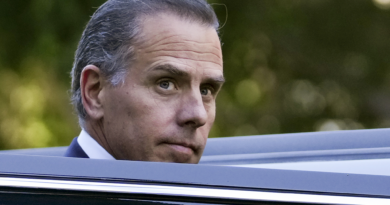'Truly, we're in a crisis': Santa Fe voters add momentum to 'mansion taxes' by approving levy on home sales over $1 million to fund affordable housing
Voters have approved a tax on mansions to pay for affordable housing initiatives in New Mexico’s capital city of Santa Fe.
Uncertified election results on Wednesday show that nearly three-fourths of ballots were cast in favor of the new tax on home sales of over $1 million, in a city prized for its high-desert vistas, vibrant arts scene and stucco architecture.
The ballot measure was pitched as a lifeline to teachers, service-sector workers, single parents and youth professionals who can’t afford local mortgages or struggle to pay rent amid a national housing shortage and the arrival in Santa Fe of high-income digital nomads.
Santa Fe resident and state Rep. Andrea Romero said the tax galvanized voters and will shore up spending for local affordable housing in perpetuity.
“It’s just exactly in the nexus of what matters,” said Romero, a Democrat who led a fundraising and educational effort in support of the tax. “Truly, we’re in a crisis.”
Tuesday’s vote signals newfound public support for so-called mansion taxes to fund affordable housing and stave off homelessness.
Voters in Los Angeles last year approved a tiered-rate tax on residential and commercial real estate sales of $5 million or more to address housing shortages, while Chicago may ask voters next year whether to raise real estate transfer taxes, starting with sales over $1 million, to fight homelessness.
The city of Santa Fe estimates that the tax would generate about $6 million annually for its affordable housing trust fund, which underwrites price-restricted housing, down-payment assistance for low-income homebuyers and rental assistance to stave off financial hardship and evictions. The trust awards funds each year to affordable housing providers who can secure matching funds from other government and nonprofit sources.
The new tax is levied against the buyer for residential property sales of $1 million or more — with no tax on the first $1 million in value.
On a $1.2 million home sale, for example, the new tax would apply to $200,000 in value. The buyer would pay $6,000 to the city’s affordable housing trust fund.
Santa Fe voters previously shied away from prominent tax initiatives, rejecting a 1% tax on high-end home sales in 2009 and defeating a tax on sugary drinks to expand early childhood education in 2017.
The city of roughly 90,000 residents is in the midst of a building boom, with thousands of recently approved housing units gradually coming online within city limits since 2021 — but most new units rent at free-market rates that can strain personal or family finances.
Meanwhile, more than 400 single family homes sold for more than $1 million across Santa Fe in 2022, according to a city-commissioned analysis.
The Santa Fe Association of Realtors has filed a lawsuit aimed at blocking the voter-approved tax, arguing that the city overstepped its authority under state law by extending an excise tax beyond services and goods, such as tobacco and vehicles, to real estate.
Association President Drew Lamprich said the tax falls on the buyer’s side of the ledger in a home sale, but ultimately has implications for the seller and overall home values in the city.
“We’re just validating that they have the legal right to do this,” he said. “Ultimately it needs to go to the state level to adjust the state statutes, if that’s what the voters want.”



